The 24 TV Shows That Shaped the 2010s
A decade ago, the best TV shows of the century were still ahead of us. We barely knew the Kardashians. American Idol was still a phenomenon, churning out viable pop stars. Lost was entering its final season, fulfilling some fans and pissing off countless others. Now, ten years later, we’ve basically abandoned our old ways of viewing in favor of cord-cutting streamers, an increasingly fractured and complicated scattering of shows across platforms, and... Quibi (what are you, Quibi?). As we look ahead at what the future of the small screen might bring, we must also look back at the best TV shows that got us here.
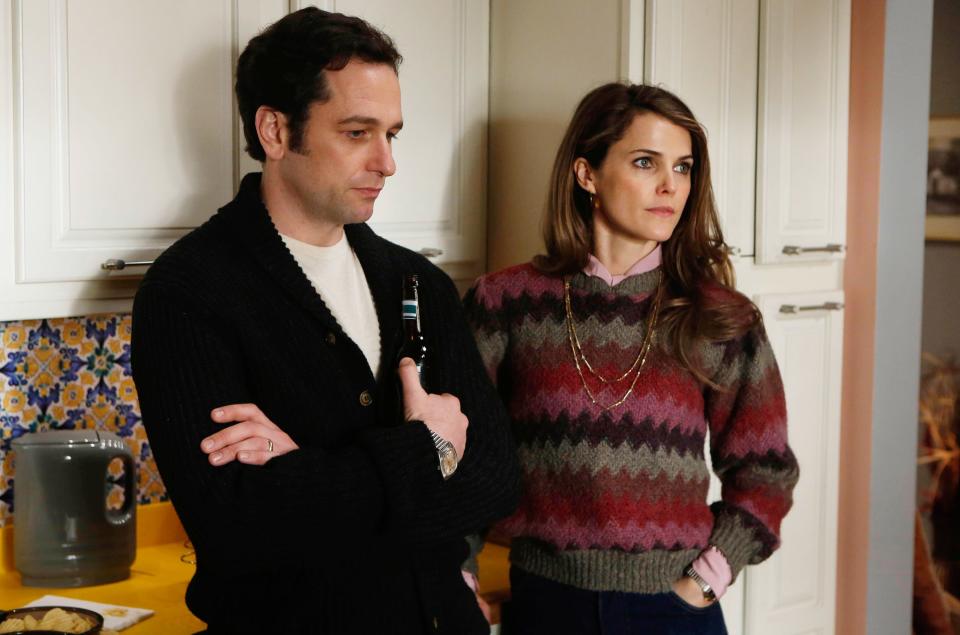
THE AMERICANS, l-r: Matthew Rhys, Keri Russell in 'Safe House' (Season 1, Episode 9, aired April 3,
The Americans
The Americans shouldn’t have worked. A spy thriller about Soviet agents deep undercover as the parents in a wholesome suburban family during the height of the Cold War? A great premise—but one wrong move and it could’ve easily veered into the schlocky and predictable. Instead it convinced us to suspend our disbelief, thrummed with tension, and balanced heart-pounding action with genuine emotional depth. (They got us to cry in a scene set in a McDonald’s to a U2 song, so.) Also—and this may have been the hardest thing to pull off—it was actually convincingly sexy.—Gabriella Paiella, culture writer
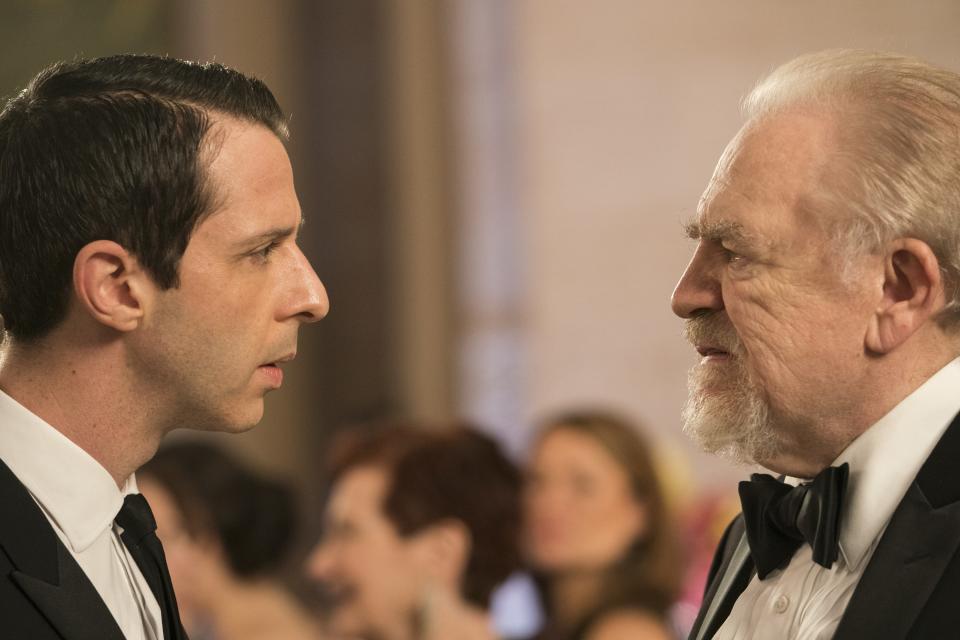
Succession
Among the eat the rich stories that have gained traction this decade, Succession occupies the epicenter. A combination of King Lear and a prestige-ier Arrested Development, Jesse Armstrong’s series about a family heading a media conglomerate stands apart from other tales of wealth because it doesn’t luxuriate in its opulence. Instead, it’s disgusted by it. In fact, one of the biggest criticisms of the show (no one is likeable!) is also its greatest strength. Succession thrives on the schadenfreude of watching abhorrent idiots fail, but when it humanizes them, it does nothing to detract from its position as a withering takedown of the 1%.—Iana Murray, GQ contributor
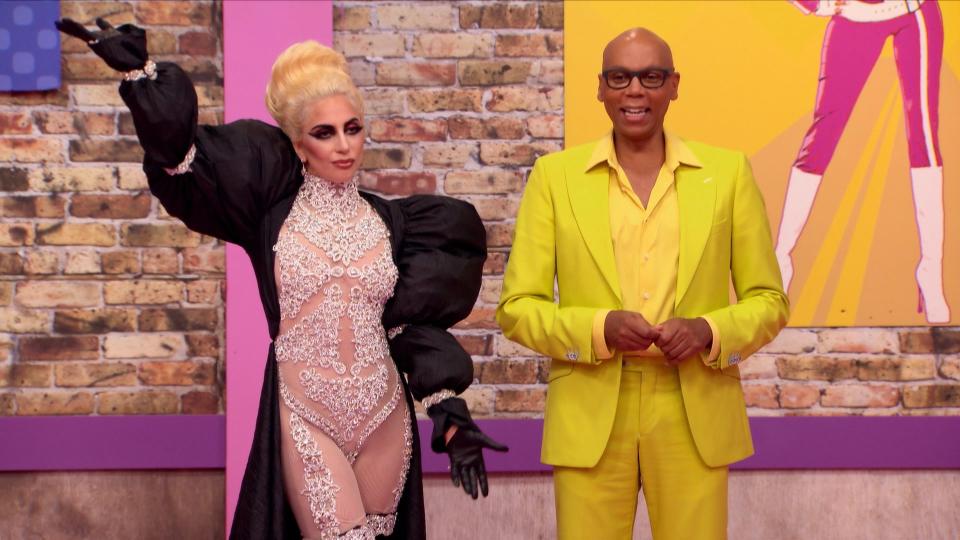
TCDRUDR EC017
RuPaul's Drag Race
There’s no more vital show to air in the 2010s than RuPaul’s Drag Race, ostensibly a competition show about drag queens clawing to be crowned the best of the best, but, in actuality, a meaningful and thought-provoking series about sisterhood, chosen family, and the ways in which LGBTQ Americans live their everyday lives. That Drag Race so neatly packages its storylines in wigs and nails and hips padded for the gods never lessens their impact or vitality. If anything, all those layers get peeled back episode by episode, allowing us to see contestants like Monica Beverly Hillz (who confessed on the runway that she’d been living as a trans woman), Roxy Andrews (whose heartbreaking story of being abandoned by her mother as a child would make a statue cry), and Ongina (who told judges she was HIV+ in the show’s first season) not become, but realize they were stars in front of our eyes.—Brennan Carley, associate editor
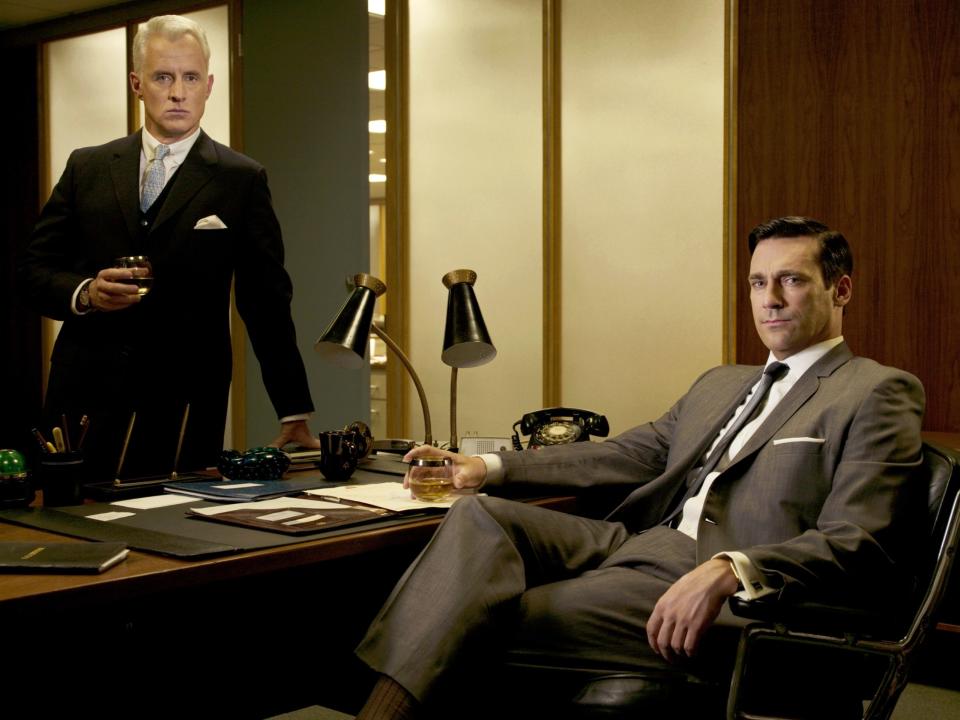
MAD MEN, (from left): John Slattery, Jon Hamm, (Season 2), 2007-. © AMC / Courtesy: Everett Collecti
Mad Men
To confine Mad Men to a roundup of shows that defined the decade? Too small scale. No show has ever been so consistently excellent as Matthew Weiner’s 1960s ad-world drama. Despite its characters’ abundant worts, Don and the Sterling Cooper Draper Price gang were always a great hang (yeah, even Pete). Like a collection of great short stories, each episode had something to say (it’s no accident that no show has produced greater criticism alongside it). Mad Men managed to capture the sweep of time in all its beauty, humor, and squalor. I’m not nostalgic for the ‘60s, but I’m certainly nostalgic for the time when Mad Men was on the air.—Max Cea, GQ contributor
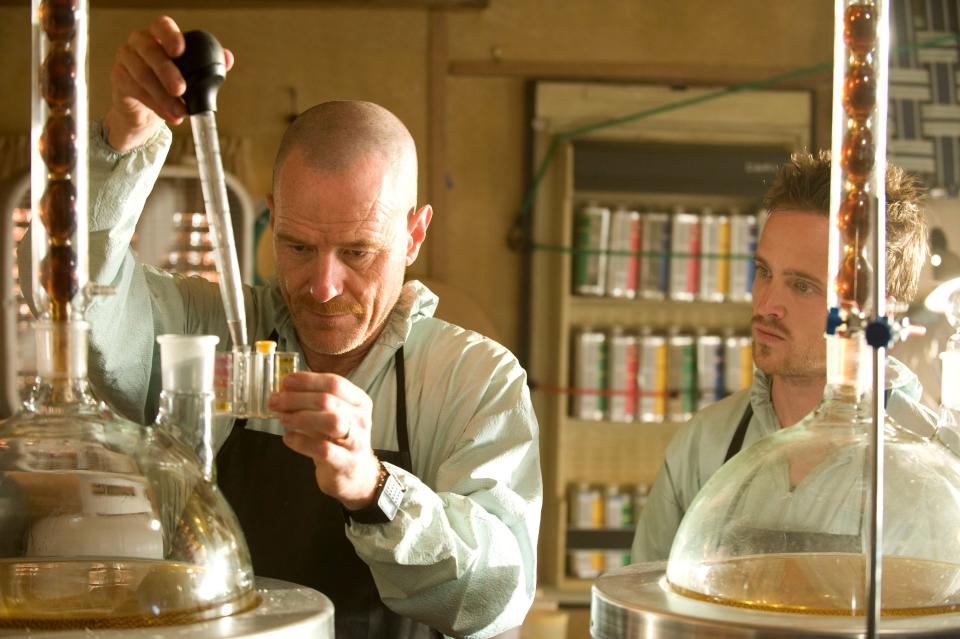
BREAKING BAD, Bryan Cranston, Aaron Paul, ' 4 Days Out ', (Season 2, episode 9, May 5, 2009), 2007-,
Breaking Bad
Breaking Bad started its remarkable run as the underdog to AMC's bread-winning powerhouse, Mad Men, and ended as one of history’s most acclaimed dramas. Vince Gilligan's pitch-black character study of Walter White may never be topped as a story about one man's rise and fall, and the rotting influence of money and power over all of us—not just the "bad guys."—Tom Philip, GQ contributor
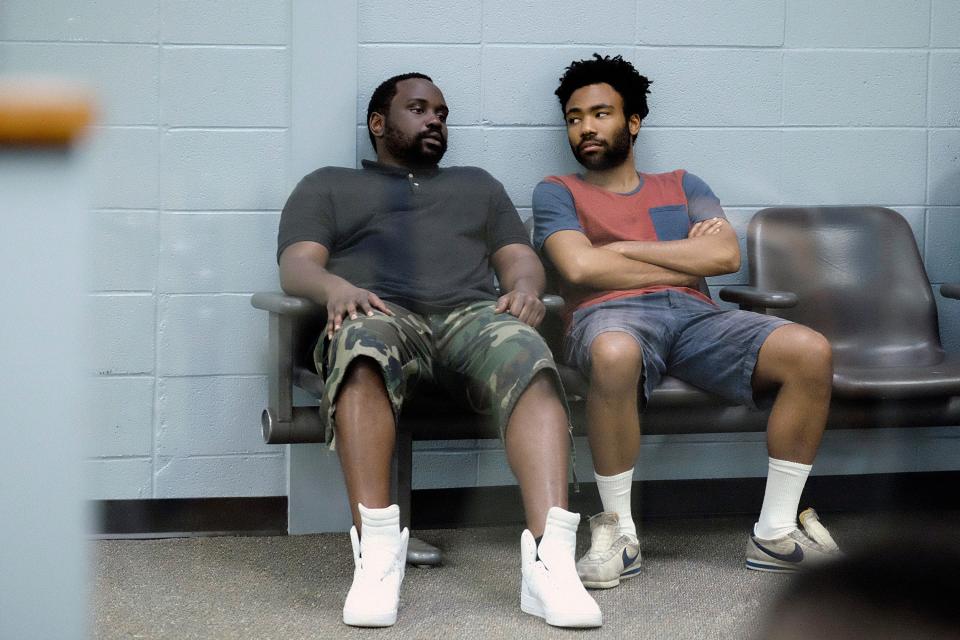
ATLANTA, l-r: Brian Tyree Henry, Donald Glover in 'Streets On Lock' (Season 1, Episode 2, aired
Atlanta
Donald Glover’s Atlanta wasn’t the first of its kind—as a surreal auteurist half hour comedy, it very much fit FX’s Louie mold—but it was far and away the coolest of its kind. Its flights of fancy were unforgettable, be they giving big guns to the Migos, giving an alligator to Katt Williams, or, simply, Teddy Perkins. It made stars of Bryan Tyree Henry, Zazie Beetz, and Lakeith Stanfield. And while we're at it, go ahead and try to name a funnier episode of television than B.A.N.!—M.C.
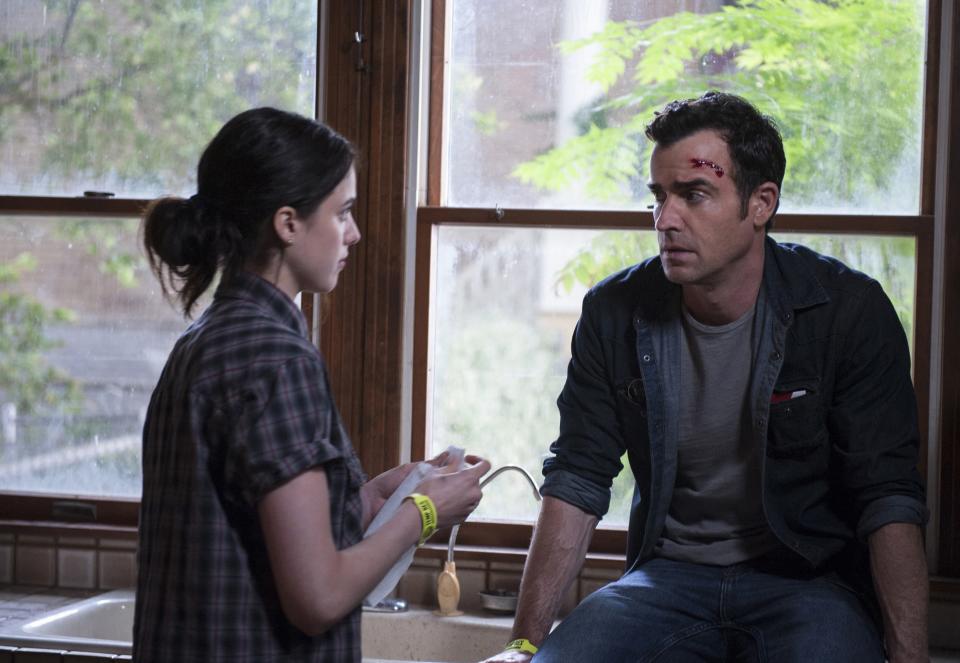
The Leftovers
No show will ever leave a legacy quite HBO oddball The Leftovers, an often brutal and occasionally funny show about life’s big questions, and the small people burdened with them. Damon Lindelof and Tom Perotta took an irresistible, high-concept premise—in which 2 percent of the world’s population suddenly and inexplicably disappears—and created something wholly unique and unexpected each week. Whether it was following the machinations of an extremist doomsday cult or trailing Justin Theroux through the (sort of) afterlife, The Leftovers nailed it. —T.P.
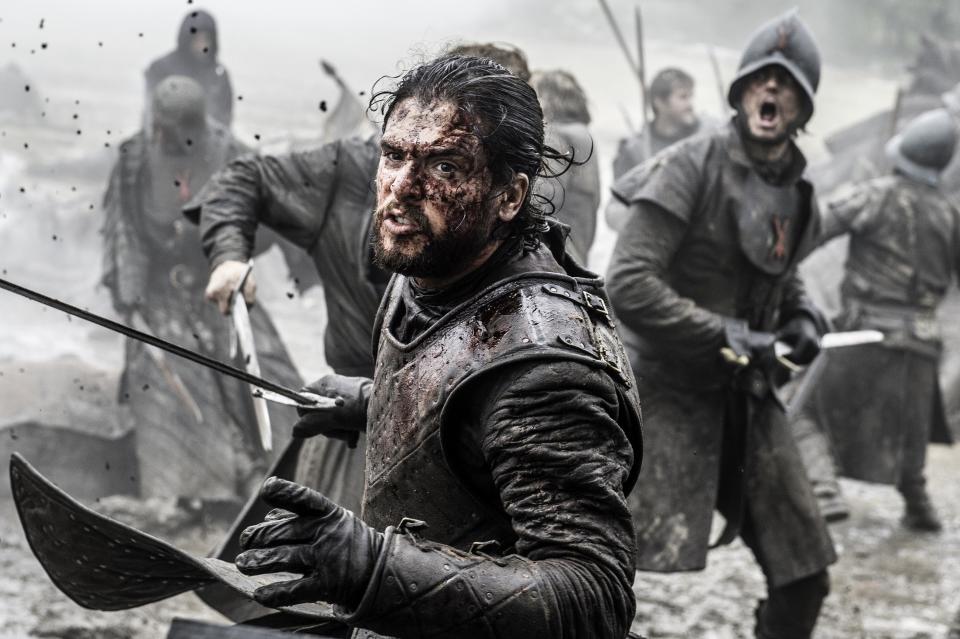
Game of Thrones
With the rise of the binge-watch, this was the decade that we did away with appointment viewing—except when it came to dragons, dwarfs, and zombies. Thrones sputtered at the end, but even when it was bad, it was momentuously big. The Thrones universe will live on, but phenomena this big will likely go extinct.—M.C.
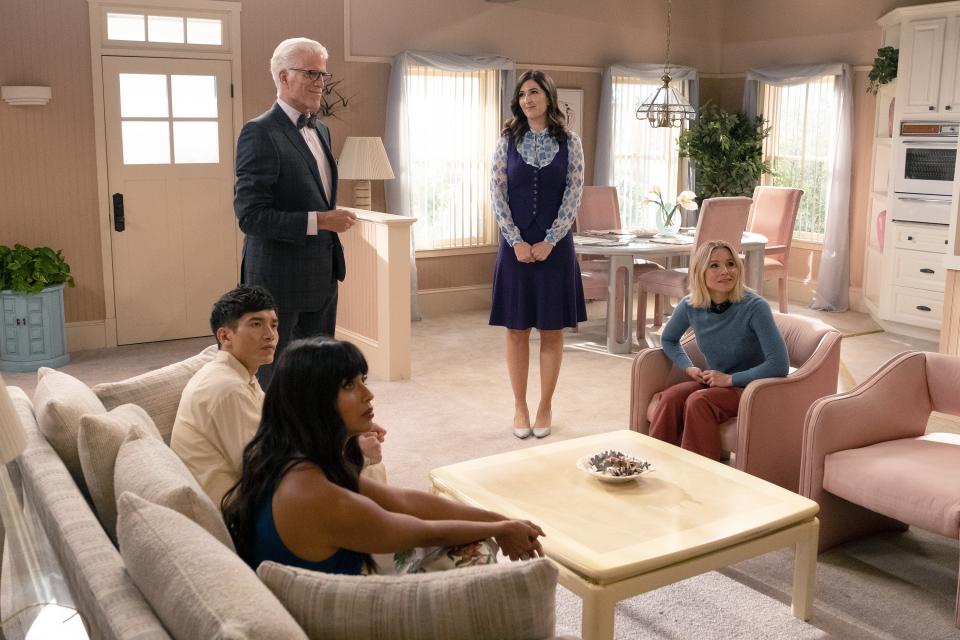
The Good Place - Season 4
The Good Place
The 2010s fostered plenty of terrifying shows about our post-apocalyptic reckoning—zombies, robots, inexplicable raptures—while in real life, Americans experienced intense political uncertainty as bad actors took control, so The Good Place couldn’t have arrived at a better time. Following four characters as they navigate their way through the afterlife, The Good Place is ultimately a show about people trying to be better, and assisting each other in their quest to do so. Every time the show threatens to become a philosophizing caricature, it reboots and becomes an even better, smarter version of itself—just like a Janet. Plus, it gets one thing 100% correct about the next life: One day, we’ll all be judged by Maya Rudolph.—Stephanie Talmadge, senior manager of newsletter strategy
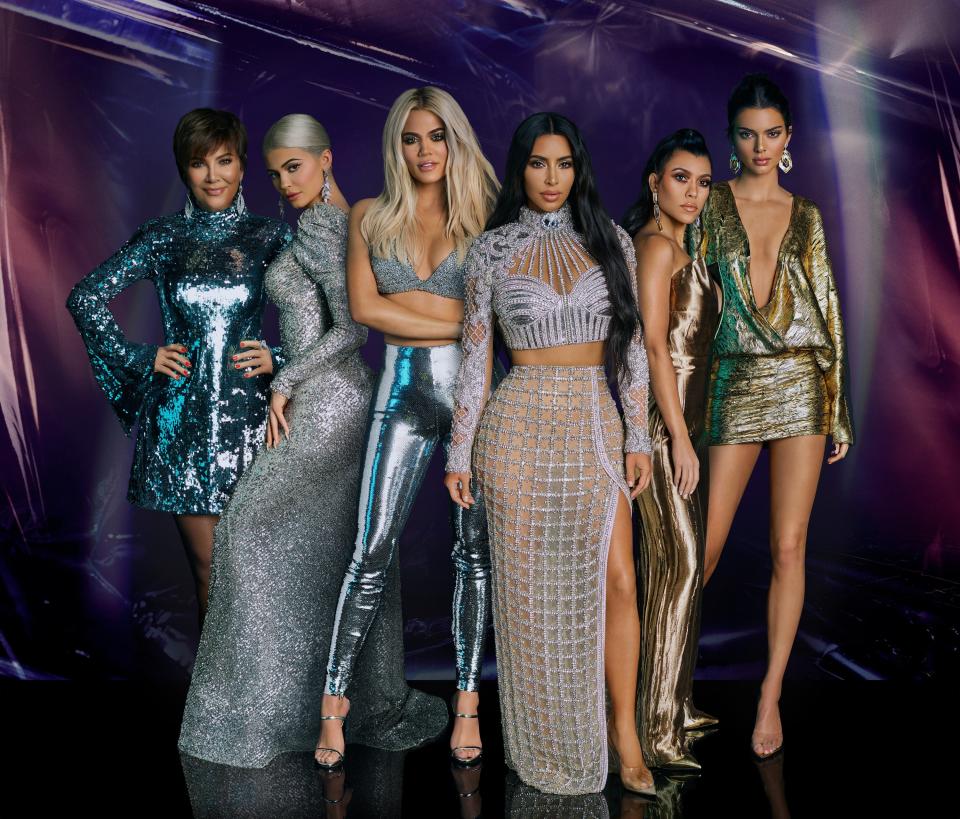
Keeping Up with the Kardashians - Season 16
Keeping Up With the Kardashians
The show that spawned a thousand memes (“Don’t be fucking rude, Kim!” and “You’re doing amazing, sweetie” best among them) and ended up gripping a country, all while barely seeming to lift a finger, Keeping Up was the rare breed of reality show that managed to maintain its grip on the zeitgeist whether or not you actually watched it. Did you tune in to see Mason’s first steps? Scott’s latest meltdown? Khloe’s reaction to Tristan’s alleged infidelity? Maybe! Or maybe you just soaked up every drop of drama in real time, keeping up in your own special way. In that way, KUWTK predicted the way we’d all consume content as we near the new decade—in bits and pieces, in non-traditional methods, in Tweets and Instagram stories—and used it to lure viewers in week after week to peek behind the curtain.—B.C.
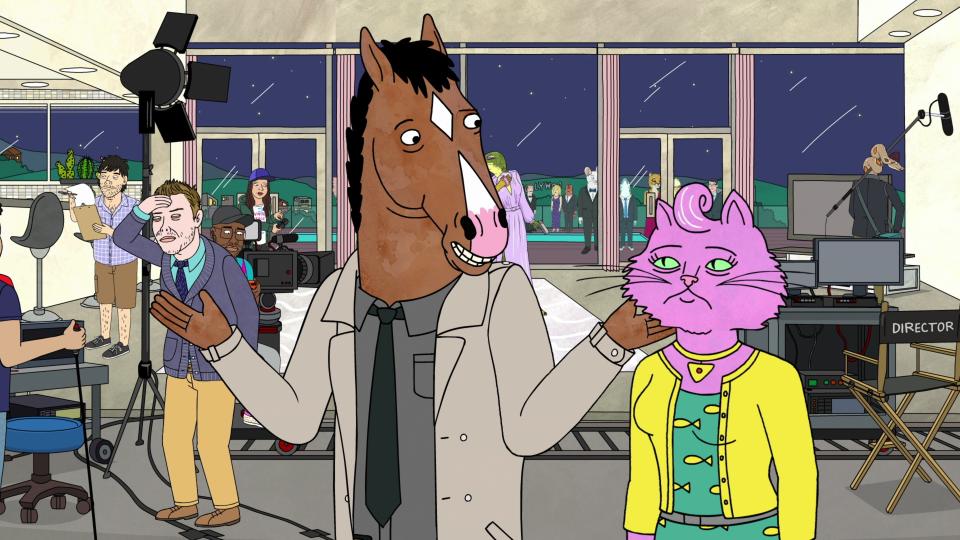
05
BoJack Horseman
You could be forgiven for calling the 2010s the decade of the "cartoon for adults." (Remember when Rick and Morty fans wrought havoc at multiple McDonald's locations over a stunt condiment?) None of them were as consistently marvelous as BoJack Horseman, though, a show that takes place in an alternate reality in which anthropomorphized animals and humans coexist. It mainly tells the story of a washed-up actor grappling with his own has-been status, with a cast of similarly self-obsessed characters constantly in his orbit. It consistently grapples with difficult subjects—depression, sexual assault, unfair working conditions, journalistic integrity—without sacrificing laughs or losing narrative trajectory. And though these characters are often put through visually-spectacular hell, it still manages to be uproariously funny. It is the benchmark by which all comedies of the decade can be judged.—Daniel Varghese, commerce writer
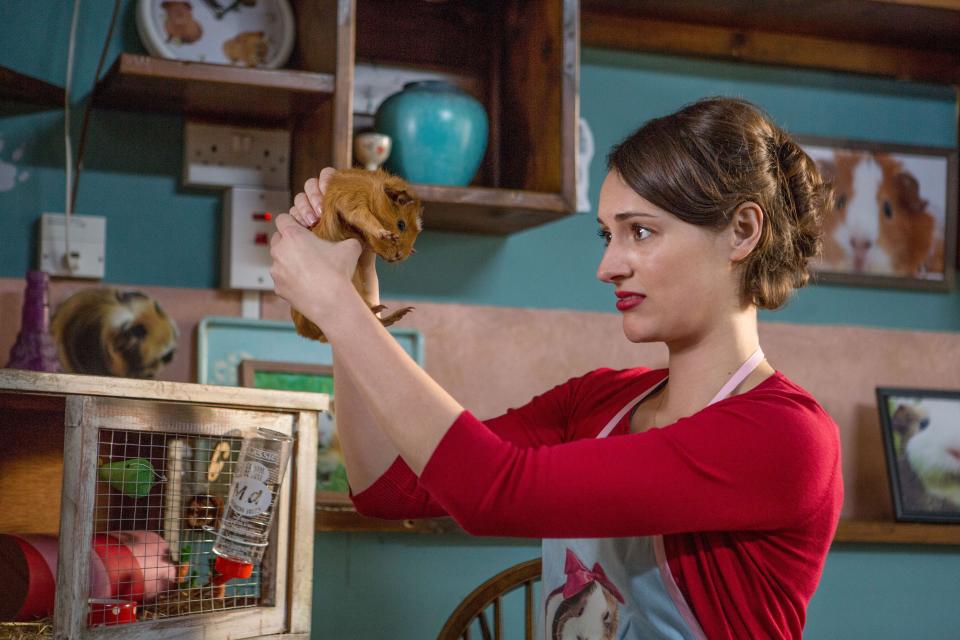
FLEABAG, Phoebe Waller-Bridge, (Season 1, Episode 2, aired September 16, 2016). ph: Luke
Fleabag
In 2013, Phoebe Waller-Bridge came to the Edinburgh Fringe Festival with her one-woman show: an hour-long monologue about a sex-obsessed owner of a guinea pig cafe. I don’t think anyone in that audience expected Fleabag to transform into one of Britain’s most essential cultural exports. In a landscape stuffed with mega-budgets and flashy casts, Fleabag was small in scale, but made the personal feel epic. It turned a priest into a sex symbol, and a black jumpsuit into a fashion must-have—but most importantly, Fleabag cemented Waller-Bridge’s status as the voice of a generation of messy, complicated women.—I.M.
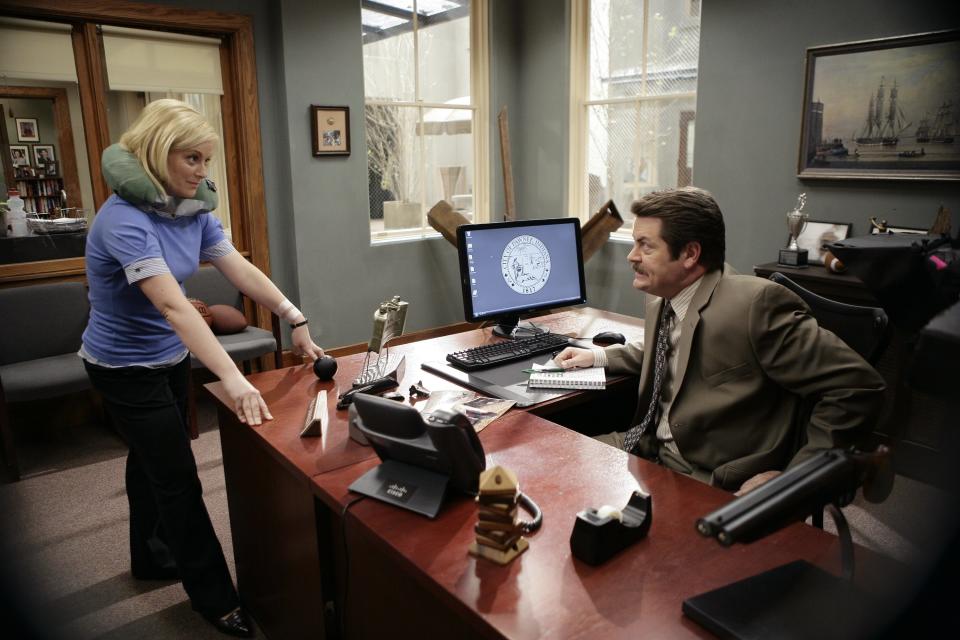
Parks and Recreation
Parks and Recreation
When show creator Mike Schur left The Office to film a pilot for about local government, fans balked, especially when they realized Parks and Recreation had adopted the same mockumentary style the former show had popularized. But in seven seasons, Parks became much more than a carbon copy of its NBC cousin, due largely in part to the whopping amount of heart it had. Chalk that up to some of the best comedy writing of the 21st century, and well-rounded, career-cementing performances by Amy Poehler, Nick Offerman, Chris Pratt, Aubrey Plaza, and more. Parks was always willing to go goofy and granular, using the interdynamics of a small office filled with well-intentioned employees to try to crack the code on what makes humans so human after all (see the final season’s fourth episode, “Leslie and Ron,” for as close an attempt at unlocking those mysteries as TV’s ever come).—B.C.
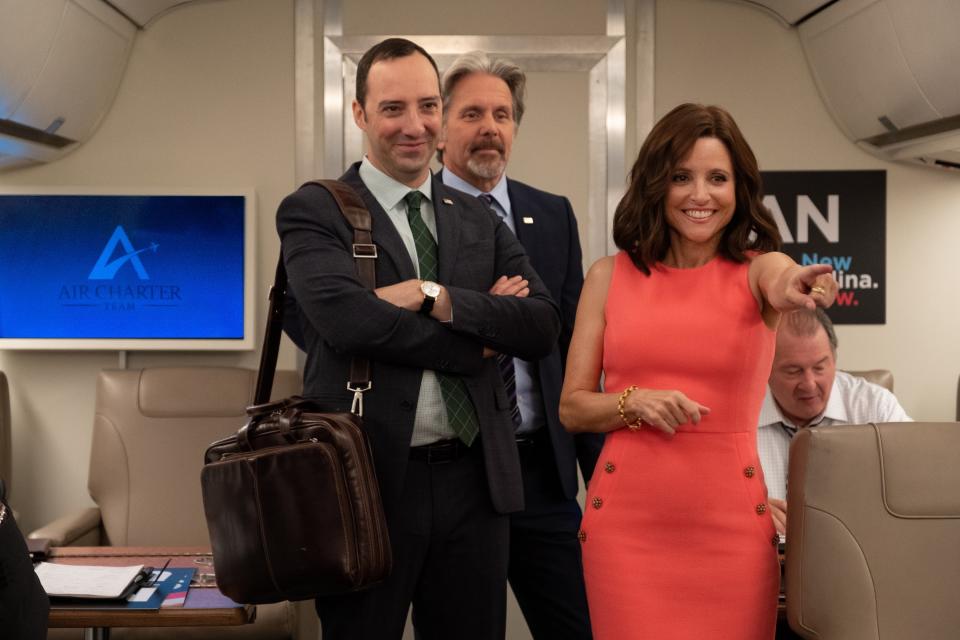
Veep
The genius of Armando Ianucci, one of the best political satirists of our lifetime, is there for all to see in *Veep*, a show that had its voice down from the very beginning. It grew up alongside us and adapted to a political world that felt more and more surreal, to the point that real life started to outpace Veep in terms of sheer lunacy. Forget Seinfeld: Selina Meyer is the role of Julia Louis-Dreyfus's lifetime, and Veep’s easily the most important, incisive political TV show of the 2010s.—T.P.
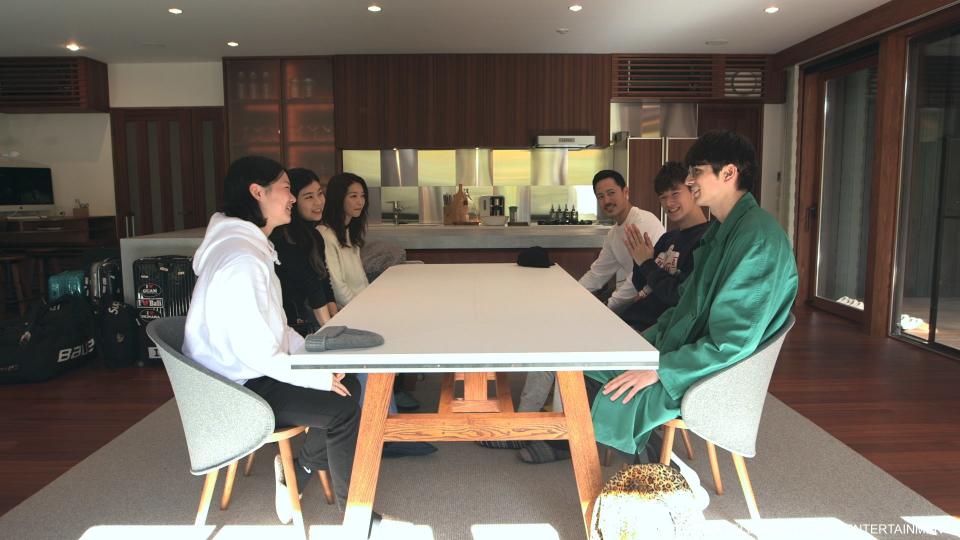
Terrace House
What makes Terrace House such an extraordinary, binge-worthy reality show is that it’s nothing like a reality show—not like the ones we’re familiar with anyway. The initial set-up is reminiscent of Big Brother: three women and three men enter a tastefully decorated home somewhere in Japan (or Hawaii that one time)… and that’s it. No cash prize, no alliances, no eliminations—it’s just people living their lives, cooking mouth-watering meals, and sometimes falling in love. Drama is rare—the most intense conflict involved a cut of expensive meat—proving that Terrace House is reality television in its rawest and most wholesome form: unfiltered, low-stakes and blissfully ordinary.—I.M.
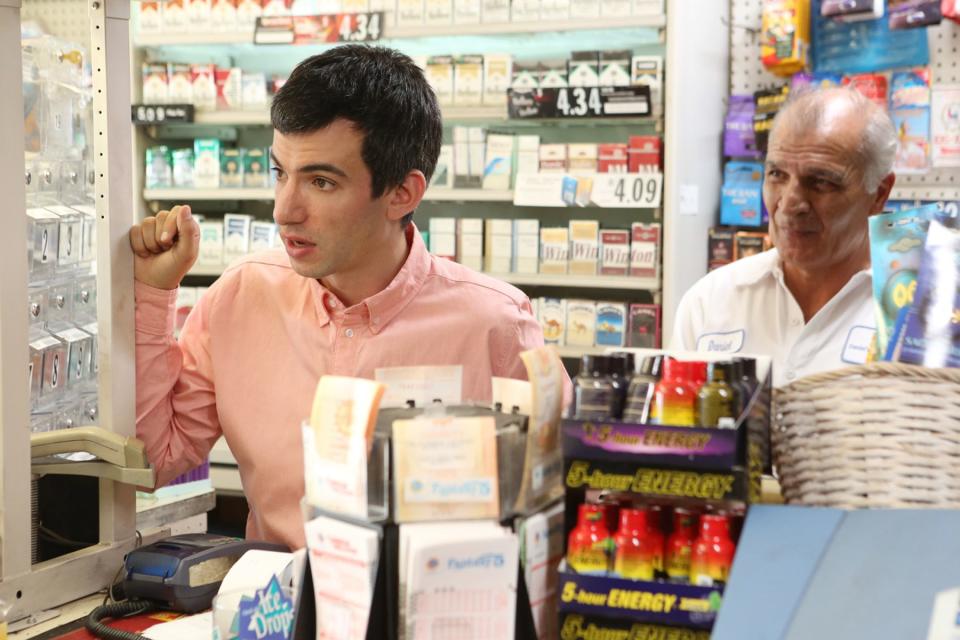
NATHAN FOR YOU, left: Nathan Fielder, (Season 1), 2013-, ph: Danny Feld/©Comedy Central/courtesy Eve
Nathan For You
Nathan For You, a deliriously funny show in which flat-voiced Canadian Nathan Fielder tricks business owners into agreeing to his insane marketing schemes, was comedy at its 2010s finest, sharpest, and most deliriously unwell. There was the gas rebate episode, in which people had to climb up a mountain to get cheap gas (they did!); there was "Dumb Starbucks"; and, of course, there was its stunning finale, Finding Frances. One need only take a cursory glance at the evolution of comedy online and on TV to see Fielder's fingerprints, thanks to this prank documentary that transcended the form.—T.P.

BROAD CITY, (from left): Ilana Glazer, Abbi Jacobson, 'Getting Bridges', (Season 3, ep. 39, aired
Broad City
Over five chaotic seasons, Abbi and Ilana romp around New York City as two (really) broke, low-life 20-somethings always on the hunt for their next thrill. Its protagonists are far from perfect; in fact, most of their tribulations are self-induced, but it’s that crass authenticity that makes Broad City so relatable, and its leads so easy to root for. The true spirit of the show is best summed up by its final scene: Abbi and Ilana, no longer together in New York, are chatting on the phone as the camera zooms out and the focus shifts to highlight all the other pairs of best friends walking through Union Square—laughing, gossiping, and reminding us that while our protagonists are special, they are not exceptional. It’s a beautiful reminder, as is the entire show, that while a friendship like theirs is rare, it isn’t impossible.—Corinne Ferman, social media/marketing designer
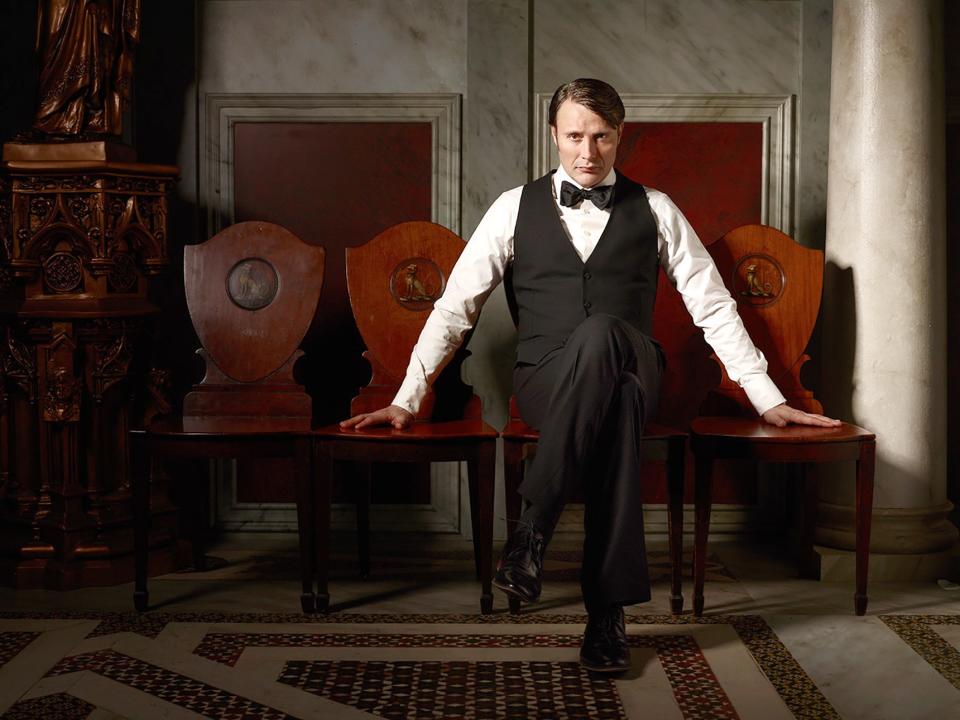
HANNIBAL, Mads Mikkelsen, (Season 3, 2015). photo: Elisabeth Caren / ©NBC / courtesy Everett
Hannibal
Hannibal doesn’t get the credit it deserves for pushing the potential of network TV into this new era. It was cerebral, smartly paced, beautifully shot, and featured some truly grizzly horror sequences that made my skin crawl more than any Saw movie’s been able to. Central to that were Mads Mikkelsen and Hugh Dancy as Hannibal Lecter and Will Graham, respectively; two sides of a truly messed-up coin. Whether you actually tuned in or not, Hannibal helped change the game thanks to three brilliant seasons, and NBC’s apparent willingness to roll the dice on some extreme gore during prime time.—T.P.
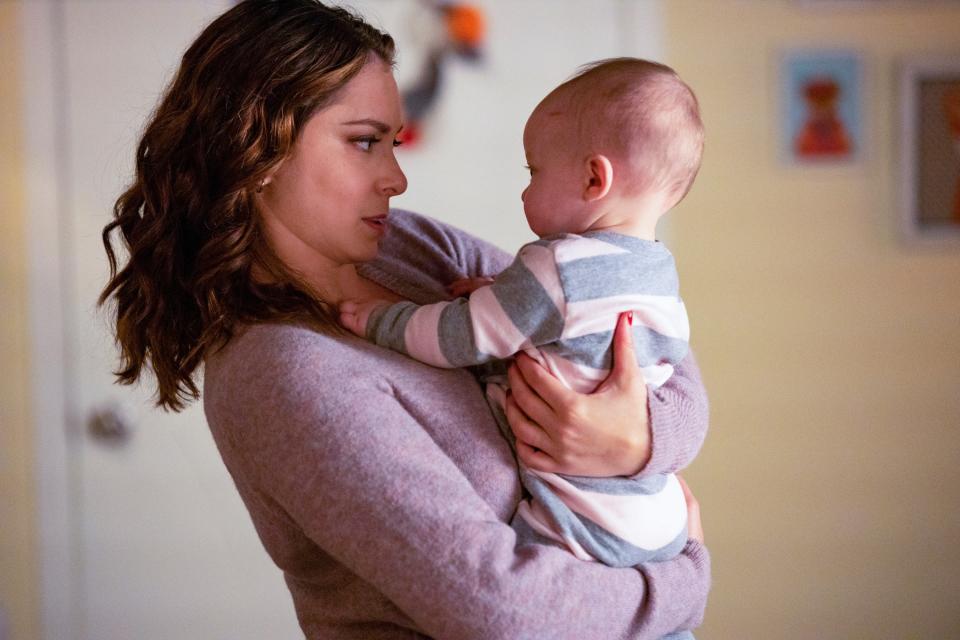
I Can Work With You
Crazy Ex-Girlfriend
A woman quits her high-powered New York City job and moves to West Covina, California to rekindle a decade-old summer camp crush she once had, and ends up finding herself along the way—through song! On paper, Rachel Bloom’s Crazy Ex-Girlfriend is hard to wrap your head around, but on screen it soared with the sort of high-octane ambition and follow through most seasoned show runners can only scratch at. Bloom herself delivered one of the decade’s most compassionate performances as Rebecca Bunch, and balanced acting with writing, directing, producing, composing, singing, and dancing. That Bloom managed it all at such a high level of quality for four seasons is a testament to her brilliance. Mark me down as eager for a revival by the time the next decade comes to a close.—B.C.
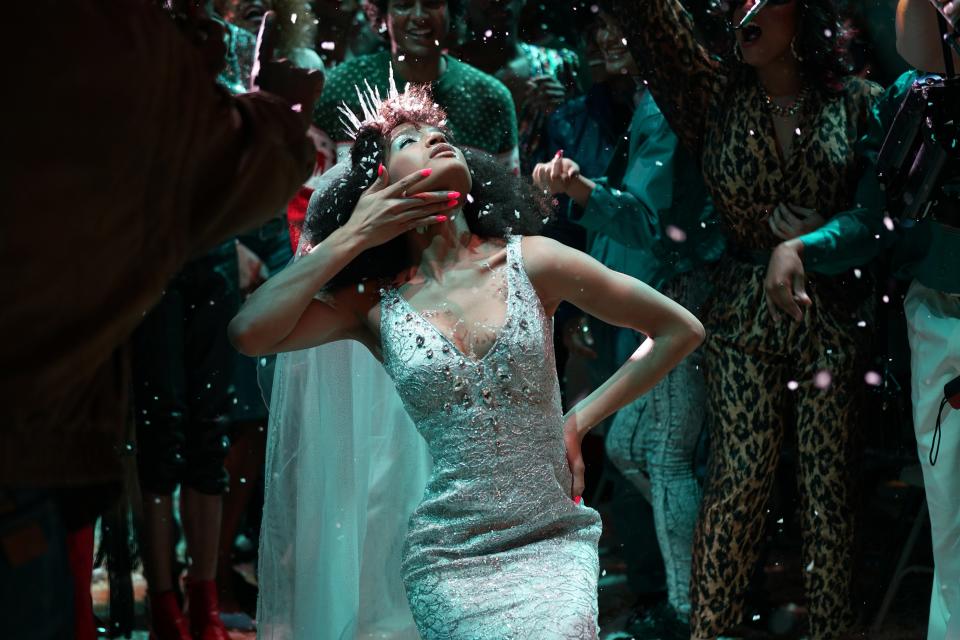
TCDPOSE EC014
Pose
It wouldn’t be the 2010s without Ryan Murphy, a perfectly unhinged small-screen legend who’s brought us Scream Queens (underrated), American Horror Story (depends on the season), American Crime Story (properly rated, and excellent), The Politician (wild, inconsistent, I will watch 1000 seasons of it give me more now), and more. The best of them, though, is Pose, a Steven Canals masterclass in balancing melodrama with camp. It features an extensive LGBTQ cast, and tells queer stories television has often shied away from with unflinching honesty and poignancy. Pose has served us looks, it’s given us the Billy Porter performance of a lifetime, and introduced us to the unmistakably talented trans actresses Mj Rodriguez (sublime as Blanca), Indya Moore (a star continues to be born in her Angel each week), and Dominique Jackson. Best of all? Pose has proven that not only can you tell these stories on a major network, but that audiences will flock to them with the sort of hunger creators could only dream of.—B.C.
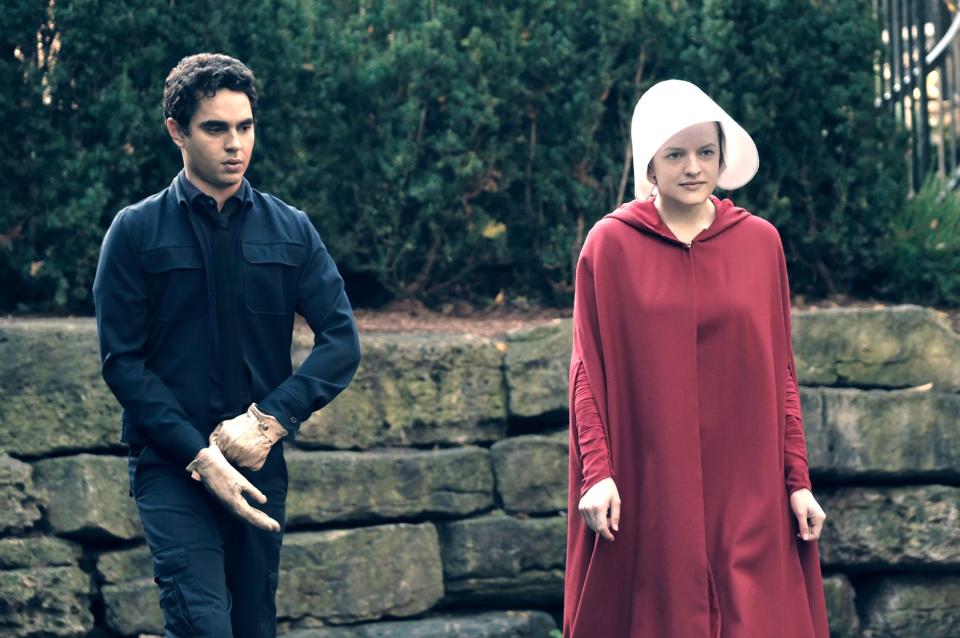
THE HANDMAID'S TALE, (from left): Max Minghella, Elisabeth Moss, 'Birth Day', (Season 1, ep. 102,
The Handmaid’s Tale
The Handmaid’s tale is all about prodding and revealing limits—and sometimes, but not always, breaking them. Its first season, stark and haunting, hit audiences like a punch, as a fluke of upsettingly prophetic timing made Gilead seem much more plausible than we might’ve suspected just months before its premiere. Soon after, the scarlet red Handmaid’s outfit became a regular fixture in the real world, looming behind Washington’s true commanders. The Handmaid’s Tale was galvanizing, but it would soon reveal the limits of white feminism. But we needed to see those shortcomings, because although The Handmaid’s Tale stands as one of the decade’s most influential shows, and an icon of resistance, it can’t help but reveal that, alone, it isn’t enough. An important lesson, both for the residents of Gilead and for viewers at home.—James Grebey, GQ contributor
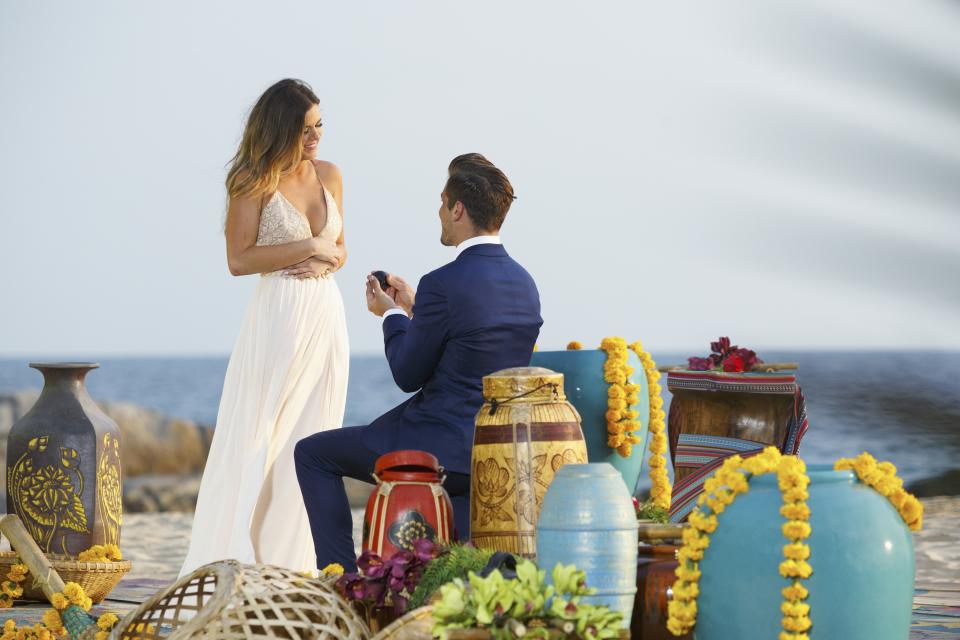
ABC's "The Bachelorette" - Season 12
The Bachelorette
Technically, The Bachelorette is still a spin-off of The Bachelor, the sprawling reality empire that can be fairly synopsized as “attractive people preparing for careers hawking subscription boxes on Instagram.” But this is the decade in which it eclipsed its older sibling—if not in Nielsen ratings, then certainly in cultural relevance. In 2017, Dallas attorney Rachel Lindsay became the first black lead in franchise history, and newly-crowned Dancing With The Stars champ Hannah Brown is arguably its biggest-ever crossover success. The Bachelor always relied on stereotyped gender roles for entertainment value, forcing smart and accomplished women to fight tooth and nail for the attention of mumbling doofuses like, say, Arie Luyendyk Jr. By deftly reversing this timeworn male fantasy, The Bachelorette acts as a reality check, repeatedly proving that America’s dudes are just as capable of causing—and reveling in—petty drama as anyone else.—Jay Willis, staff writer
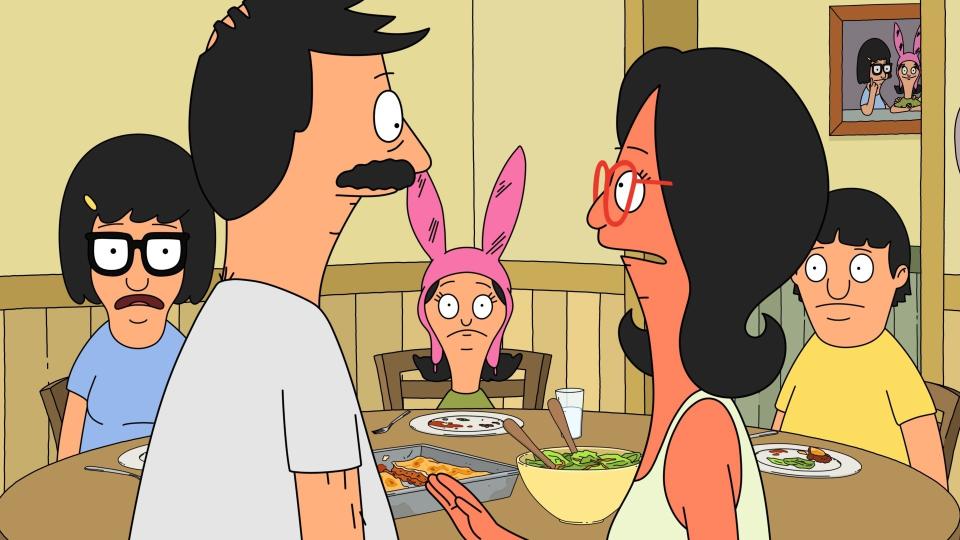
TCDBOBU FE003
Bob's Burgers
I never considered myself an adult cartoon type of person (which, yes, absolutely a type of person), but as soon as I gave Bob’s Burgers a chance, I was instantly enamored with the central Belcher family. Where its contemporaries tend to rely on archetypes and low-hanging jokes, the characters in Bob’s Burgers feel unique, dynamic, and warm. (Point me to another sitcom mom who’s been banned from a bakery for taking too many free samples and enthusiastically encourages her own kids’ erotic fan fiction.) Part of that is due to excellent casting—H. Jon Benjamin, who voices Bob, is the perfect straight man counter to his family’s chaos, and Kristen Schaal soars as mischievous nine-year-old Louise—but the show’s writing makes a concerted effort to delight in the familial tedium that other shows like it mock, while maintaining its sharp wit. Between the spontaneous (and frequent) bursts into song, the way it tackles thornier issues, and its well-developed inter-character relationships, watching Bob’s Burgers feels like you’re home at last.—S.T.

No Reservations / Parts Unknown
Somehow, while working on the GQ tribute to Anthony Bourdain last year, I ended up at Daniel on the Upper East Side with his brother, Chris Bourdain, and Drew Magary, who wrote the story. It was a bit of an odd fit: I grew up on Sizzler as the pinnacle of fine dining, and yet there I was, at a gorgeous Michelin-starred restaurant wearing a too-tight dinner jacket and inhaling caviar while Chris told us stories about his late brother. In a way, that’s what Anthony Bourdain did: He plucked you out of your tiny corner of the world and placed you elsewhere, somewhere you thought you’d never be. That he did so for 13 seasons by way of No Reservations and later, after leaving the Travel Channel, Parts Unknown on CNN, is a testament to not just the singularness of Tony, but his mission as a host, guide, poet, curator, would-be Rosetta Stone, or what have you. Bourdain was insatiably curious, the kind of man who via television made the crushing vastness of everything feel more manageable. He wanted you to discover the world on your own terms, but if you happened to learn how to see things how he learned to see them, all the better.—Chris Gayomali, site editor
Ten years ago, Folgers coffee first aired their now-infamous “Coming Home” ad. Little did they know, it would go on to inspire everything from parody videos to severely NSFW fan fiction. Here, GQ talks to the people involved in this holiday miracle.
Originally Appeared on GQ


